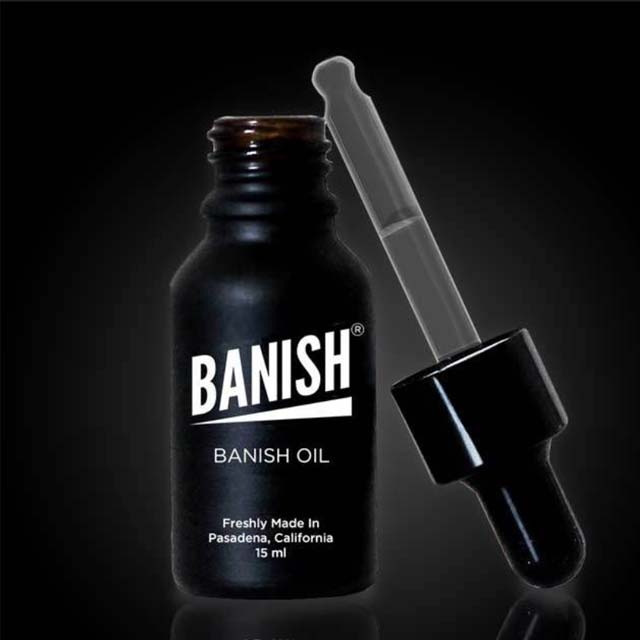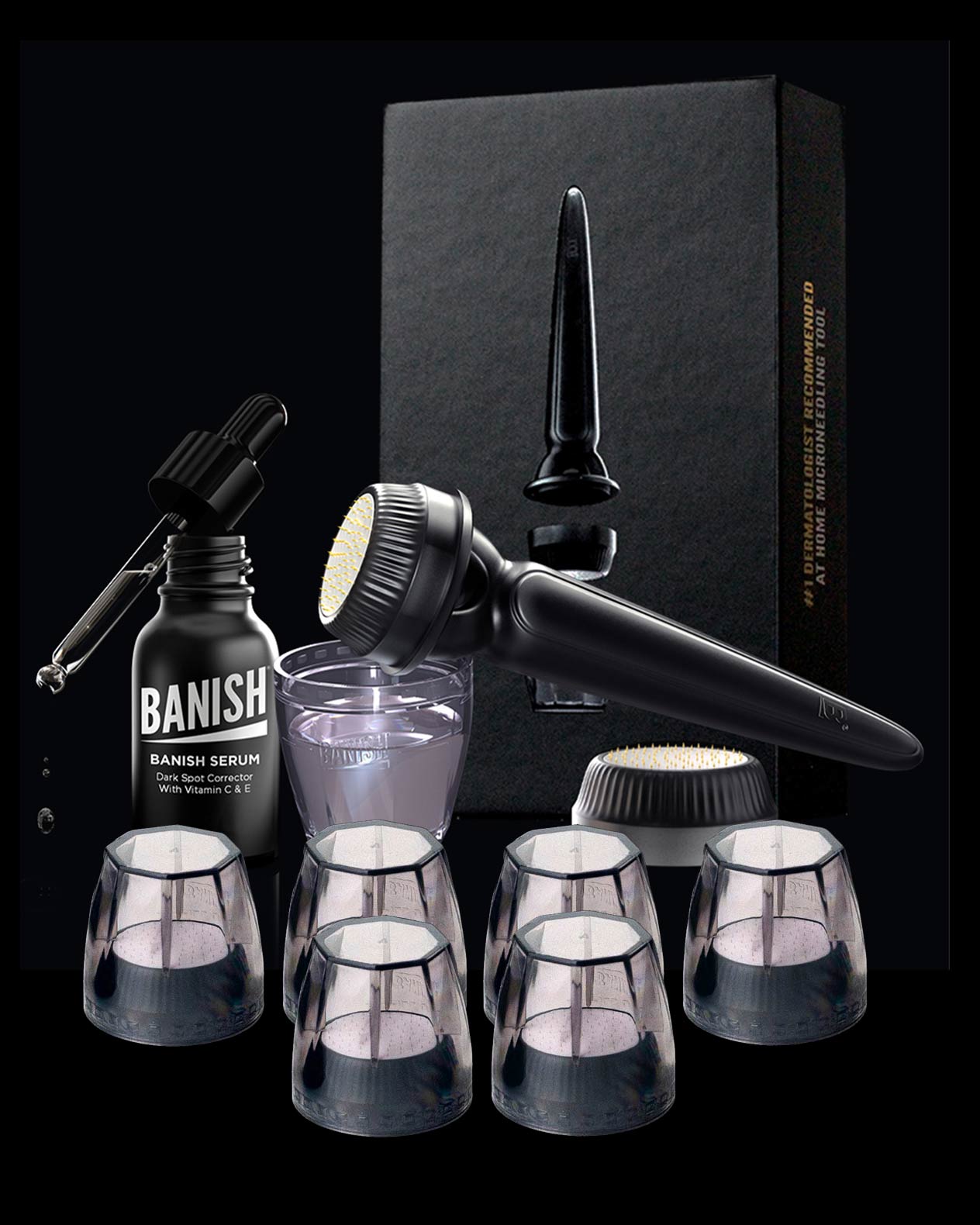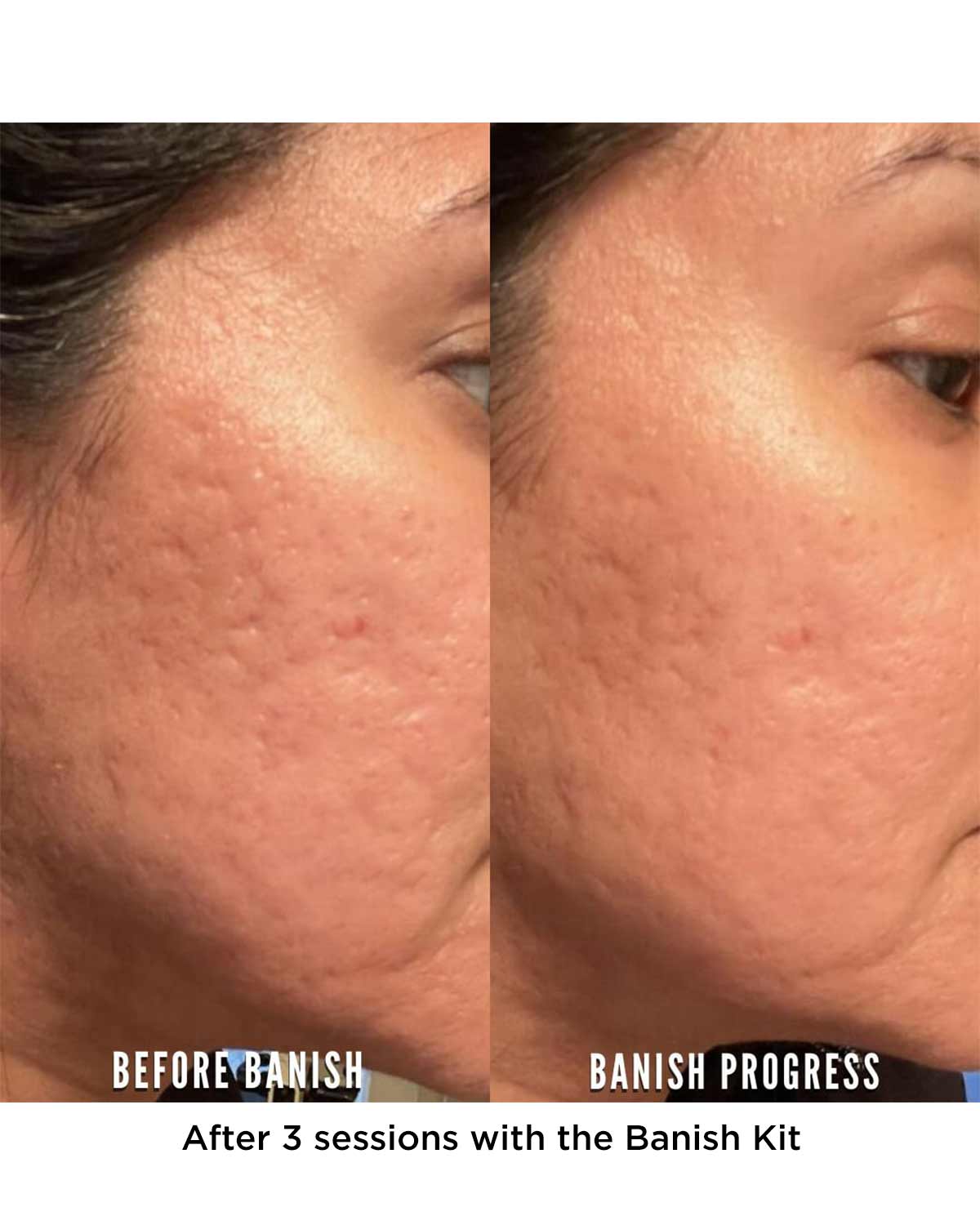
by Samantha
Probiotics is a term used to describe live microorganisms that are considered beneficial for our health, although the term is generally reserved only for the bacteria and yeasts that we ingest in foods or supplements. But probiotics are also loosely defined in topical applications, as well.
Using probiotics internally and topically to treat acne and other skin conditions are both recent trends in the skin care industry, leaving some wondering if probiotics have the potential to be the ultimate cure for acne that we’ve been waiting for. While we’ve talked about eating more probiotics, which may or may not improve acne symptoms, the potential for probiotics to work at the site of application is too exciting to just gloss over!
how do probiotics work?
If probiotics are going to be the ultimate cure for acne we at least need to understand how they work for our skin’s benefit.
Skin, the largest human organ, is a complex and dynamic ecosystem, inhabited by many thousands of microorganisms. And while genetics, behavior, environment and other events may drive variability in our skin microbiota, probiotics are believed to optimize, maintain and restore the microbiota in different ways.
Ingested probiotics help to keep your gut healthy by lining the digestive tract and supporting your body’s ability to absorb nutrients and fight infection.
Topical applications have a more direct effect at the site of application by enhancing the skin’s natural defence barriers. Probiotics and other resident bacteria produce antimicrobials that benefit our skin’s immune responses and eliminate pathogens.
There are many probiotic products out there that stake the claim of clearing up acne and other skin conditions, but as of now, none have received therapeutic treatment status.
In terms of skin care products, there are several topical applications on the market right now touting probiotic benefits. These include brands like Tula, GloBiotics, BioElements, Eminence and Epicuren, all of which list anywhere from one to three strains of beneficial bacteria in certain products.
If you take a peek at some of the products these companies offer, you’ll notice that probiotic skincare is no cheap acne treatment – but some say the results are worth the cost because it really is the ultimate cure for acne!
oral probiotics and acne
If you look at the anecdotal reviews of probiotic supplements on a whole, you see a pretty striking rate of highly satisfied customers! People truly cherish their probiotics, and some even credit their supplementation for improving various conditions and their overall health. While most people claim an improvement in digestive symptoms only, some even go so far as to suggest these supplements improved their skin. But do these anecdotes really stand up to the test?
At this time, we just don’t have a lot of research to go on, but there are some observations we can make.
One randomized, double-blind, placebo-controlled study of 56 children aged 6-18 months with moderate or severe atopic dermatitis found that those who received L fermentum probiotic supplements had improved severity in symptoms. Another study also found that two other strains also improved atopic dermatitis symptoms in children. However, a follow-up of the second study, found that Lactobacillus rhamnosus and Bifidobacteria lactis improved atopic dermatitis, but only in food sensitized children.
A meta-analysis (a large review of studies) evaluated the use of ingested probiotics on the improvement of eczema symptoms in children, and found probiotics to be an ineffective treatment option.
While atopic dermatitis and eczema aren’t acne, these studies may help shed light on the direction we can expect acne-oral probiotic research to go.
Still, with studies showing other positive effects from using oral probiotics, it’s still unclear whether the benefits would outweigh the known (and potential) risks.
topical probiotics and acne
While I believe that oral probiotics have some potential as health-promoting supplements, if we can advance our knowledge a bit more, I hold much more hope for topical applications of probiotics, and for good reason.
The first report that topical use of probiotics may be helpful in acne and other skin conditions was published in 1912, but until more recently we haven’t had much hard evidence.
To start, we now know that dysbiosis in the skin’s microbiome can lead to disease. Probiotics have been shown to alter the skin’s microbiome, improving the moisture barrier and impeding P. acnes bacteria through the production of antibacterial proteins. Topical application could even result in a 50% - 89% reduction in acne papules and pustules, in both number and severity. Another study similarly found that topical probiotics work by inhibiting the skin’s colonization by “bad bacteria”, and by producing potent antimicrobials that prevent pathogen adhesion. I am all for preventative medicine in skin care!
In several other studies, a cream containing Streptococcus thermophiles caused an increase in ceramide production in the skin, which works to improve the skin’s barrier. Not only did the cream amp up the production of ceramides, which play an essential role in the skin’s water-holding abilities, but patients also directly experienced less skin itching, redness, dryness and flaking as a result.
Probiotic bacteria also produce acidic compounds like lactic acid, known to be beneficial for the skin, which then acidifies the skin and discourages the growth of certain pathogens while promoting “good bacteria”.
By decreasing the amount of P. acnes on the surface of the skin, and inducing the production of healthy ceramides, topical probiotics can restore important fats which can benefit acne directly, and counter common side effects resulting from acne therapies.
Other papers have focused on the potential for topical probiotics to be used in other wound healing and infection, with promising results.
Looking at the research in an overview, it seems pretty clear to me that topical probiotics, particularly certain strains, hold enormous potential in skin care and the treatment of skin issues like acne.
a note on strains
Everything I’ve ever encountered with probiotic research has emphasized the importance and diversity in species, and in strains. Most studies can only focus on a few of the thousands of species, and a few of their potential strains. Therefore, we can expect the research to be slow and painful. But just because current research doesn’t indicate a strong benefit from probiotic supplementation at this point, doesn’t mean there isn’t the potential for future research.
Some people, like myself, believe bacteria to hold far more potential than we have yet recognized, and so, hold out for promising research in the years to come.
the ultimate cure for acne?
So, are probiotics the ultimate cure for acne?
For many people, probably not – the pathophysiology of acne is often much more complex than just what’s on the skin’s surface. The literature on probiotics, though very promising, is still in its infancy. But could using probiotics still drastically help some people – people with damaged or dehydrated skin, for example? I certainly think so. In fact, in my humble opinion, I think probiotics may hold the potential to change skin and health care as we know them. With antibiotic resistance on the rise, and the body of evidence on the importance of microorganisms growing, the time is upon us to start heavily entertaining these promising alternatives. I think microbiology and germ studies still have a lot left to teach us.

























Leave a comment
All comments are moderated before being published.
This site is protected by hCaptcha and the hCaptcha Privacy Policy and Terms of Service apply.